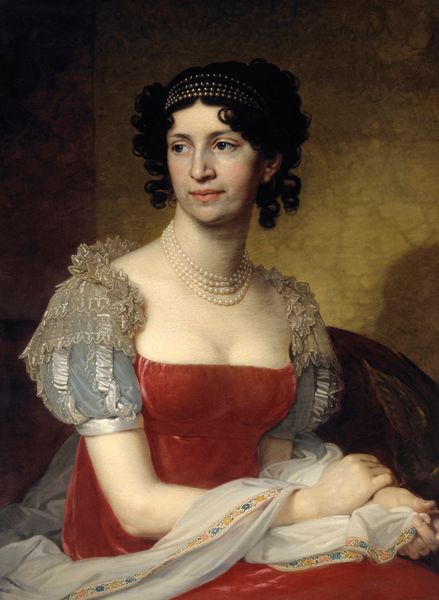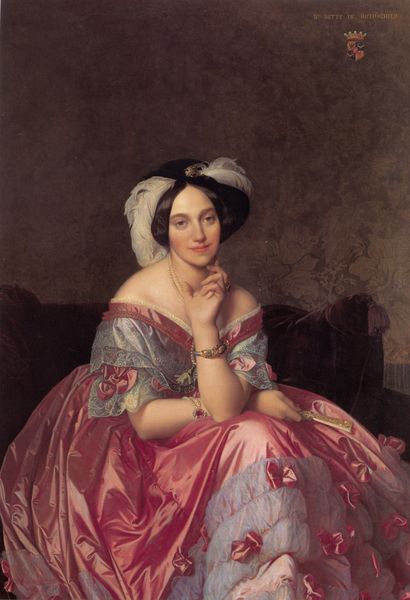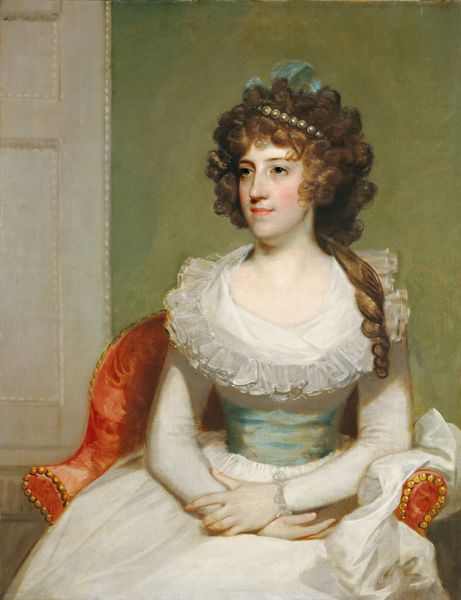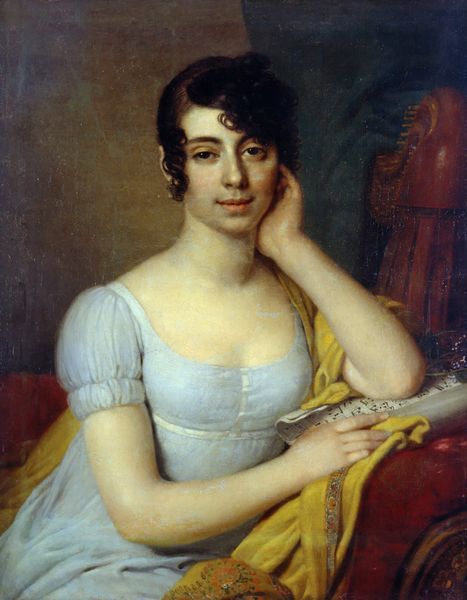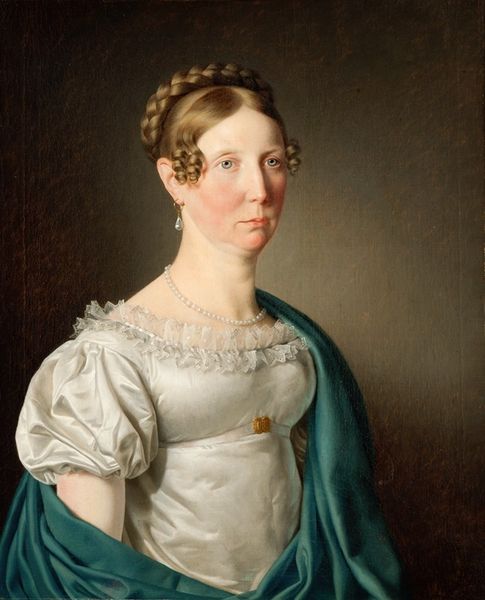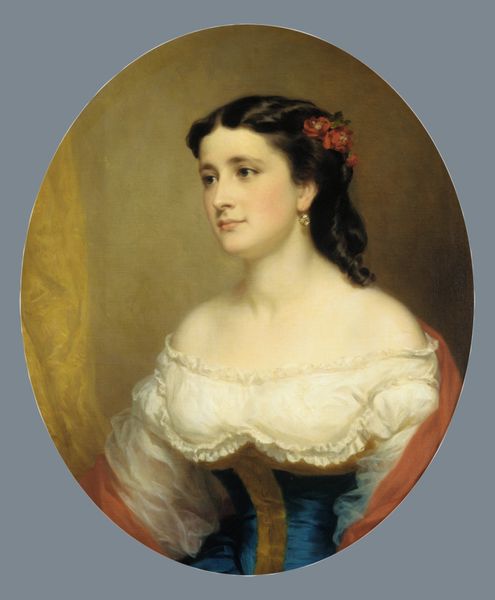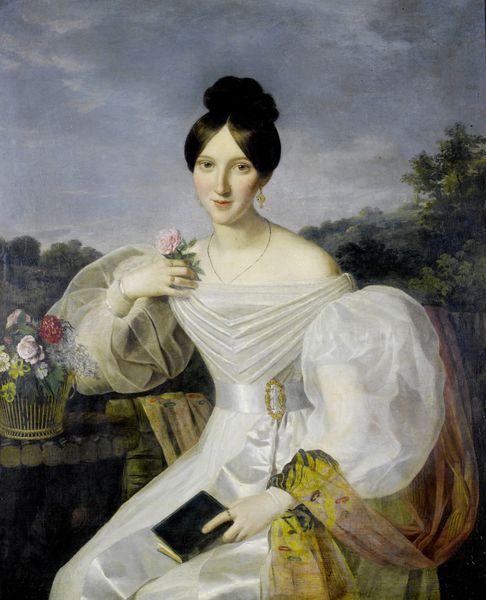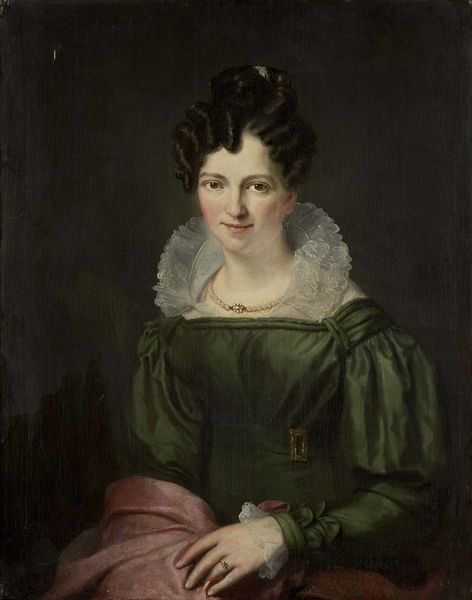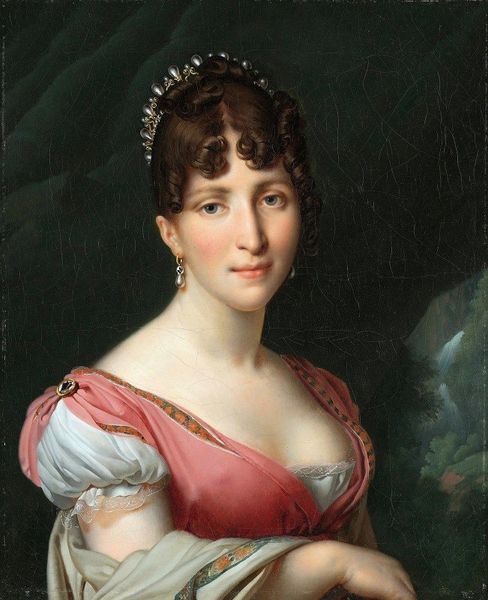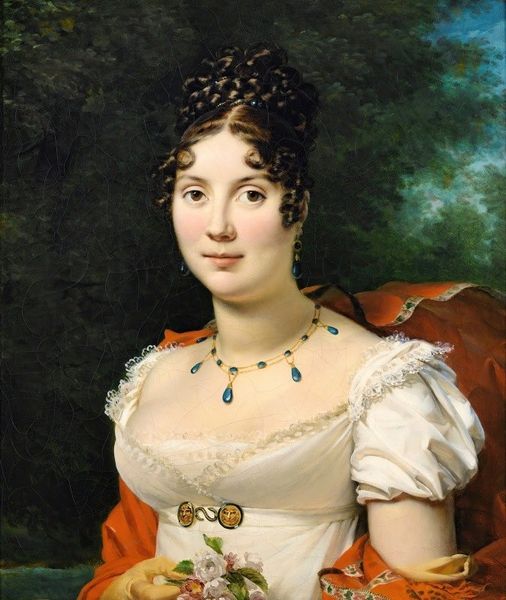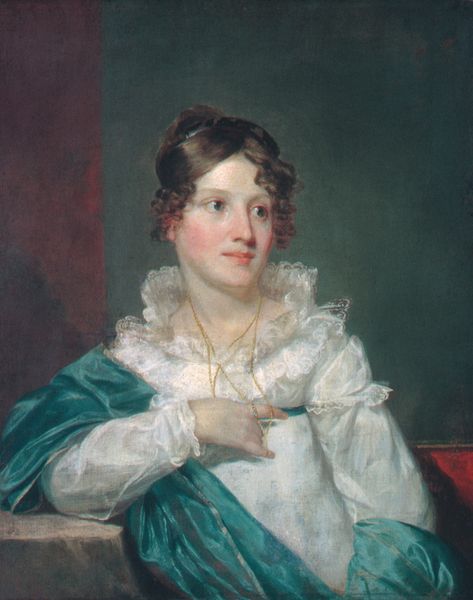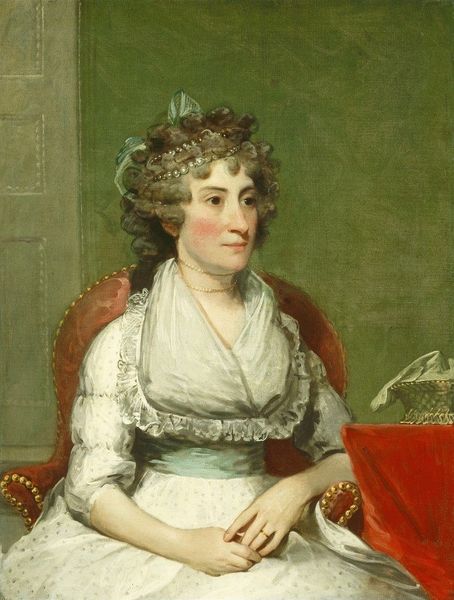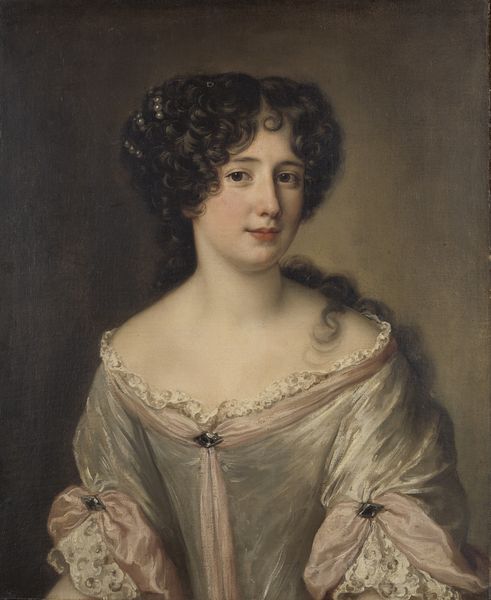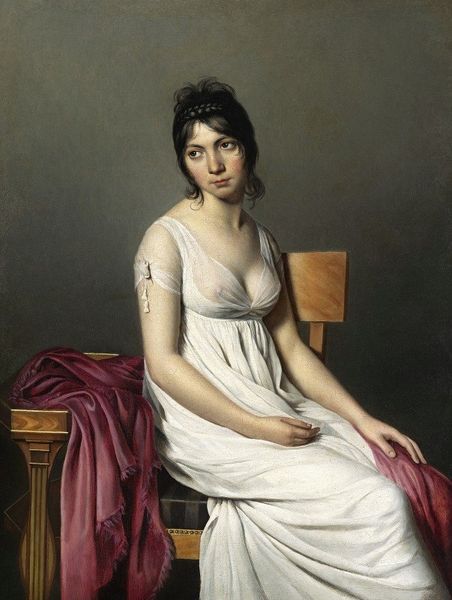
Portrait of Ekaterina Vladimirovna Rodzianko 1821
0:00
0:00
vladimirborovikovsky
Belarusian National Museum of Fine Arts, Minsk, Belarus
painting, oil-paint
#
portrait
#
painting
#
oil-paint
#
romanticism
#
cityscape
#
realism
Copyright: Public domain
Curator: Painted in 1821, this is Vladimir Borovikovsky's "Portrait of Ekaterina Vladimirovna Rodzianko," an oil on canvas currently residing in the Belarusian National Museum of Fine Arts. I find it an evocative example of Russian Romanticism. What are your initial thoughts? Editor: It feels terribly formal, yet serene, almost dreamlike. Her skin has the luminosity of moonlight. Though… her expression seems to hint at some melancholic secret. I wonder what she's really thinking. Curator: Such commissioned portraits often functioned as declarations of social status, of course. Her dress, the backdrop depicting landscape scenery… they signal a certain position within Russian society. Note the infant’s portrait in the background. Editor: Right, this wasn’t a spontaneous snapshot; it was carefully constructed. Yet, Borovikovsky captured a sense of inner life, don’t you think? It goes beyond mere representation. Look at the confident vulnerability in her eyes. Also that little unfinished child’s portrait hints a sort of future potentiality, so much implied! Curator: Absolutely, he infused elements of Romanticism—emphasizing emotion, subjectivity, and a hint of the sublime. The painting blurs the line between realism and idealization. But those elements also reveal contemporary cultural attitudes, like, perhaps the status symbol of maternity, so in line with tradition… Editor: Traditions. Hmmm... Even within those constraints, she comes across as a fully realized person. It’s a conversation across centuries. It asks something of me, this portrait. I feel seen by her as much as I see her. And how often does that truly happen with a portrait, so old? Curator: I think you've perfectly articulated its enduring power! It reflects on so much more than status—human experience itself! Editor: It’s nice to know people of her social position still went through a variety of universal, yet personal, troubles. Now, there’s some art.
Comments
No comments
Be the first to comment and join the conversation on the ultimate creative platform.
